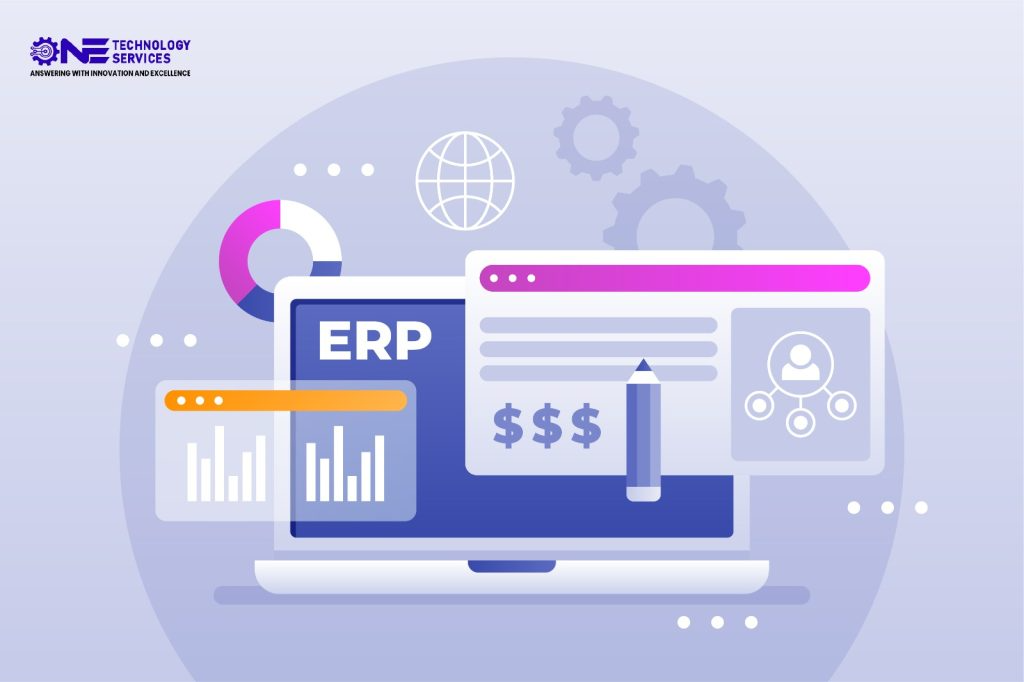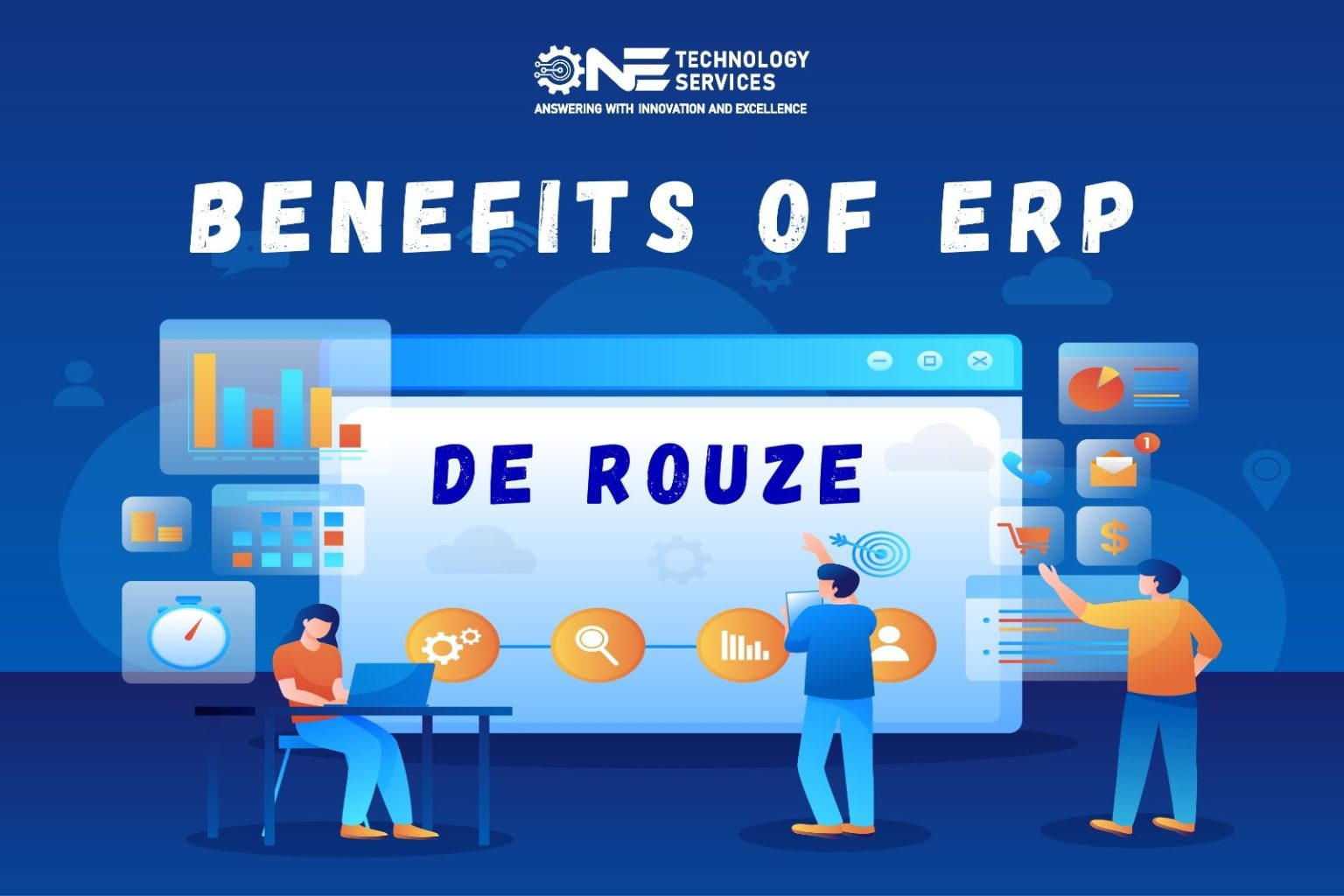In today’s dynamic business landscape, the implementation of an ERP system brings numerous benefits to organizations. The centralized nature of an ERP system allows for streamlined operations and improved efficiency, enhanced decision-making with real-time insights, improved customer relationship management, scalability and adaptability, cost savings, and ROI, regulatory compliance and risk management, improved supplier and vendor management, employee empowerment and engagement, and competitive advantage.
In this comprehensive blog, we will delve into these ERP system benefits, showcasing how they can optimize operations, boost productivity, enhance decision-making, and ultimately drive long-term success for your business.
Streamlined Operations and Improved Efficiency
Implementing an ERP system results in streamlined operations and improved efficiency within your business. By centralizing various processes and automating manual tasks, an ERP system eliminates redundancy and reduces data entry errors, leading to enhanced accuracy and efficiency.
With an ERP system, employees can focus on value-added activities instead of mundane administrative tasks, boosting overall productivity.
Additionally, interdepartmental collaboration is enhanced, leading to better communication and information sharing across the organization.
Enhanced Decision-Making with Real-Time Insights

One of the significant benefits of an ERP system is the availability of real-time data and insights. By integrating different business functions into a single system, an ERP system provides a holistic view of your operations. This comprehensive view allows management to make data-driven decisions by accessing accurate, up-to-date information.
With robust reporting and analytics capabilities, ERP systems enable businesses to identify market trends, forecast demand, monitor key performance indicators, and gain valuable insights for strategic planning and agility.
Improved Customer Relationship Management (CRM)

Implementing an ERP system improves customer relationship management by centralizing customer data and enhancing personalized interactions. With integrated CRM functionalities, an ERP system enables businesses to access customer information, order history, and preferences, resulting in more targeted marketing campaigns and improved customer service.
This personalized approach increases customer satisfaction, loyalty, and higher sales opportunities.
Scalability and Adaptability
ERP systems offer scalability and adaptability to accommodate the growth and changing needs of businesses. Whether expanding into new markets, introducing new product lines, or acquiring subsidiaries, an ERP system can seamlessly scale your business.
Additionally, ERP systems provide flexibility through customization and configuration, ensuring that the system aligns with your unique processes and can meet industry-specific requirements.
Cost Savings and ROI
While implementing an ERP system incurs upfront costs, the long-term benefits result in significant cost savings and a positive return on investment (ROI). ERP systems automate processes, optimize inventory levels, and improve resource management, leading to cost reductions. The elimination of manual errors, efficient procurement processes, and improved inventory management contribute to substantial cost savings.
Moreover, ERP systems increase productivity, enhance operational efficiency, and drive revenue growth, ensuring a favorable ROI.
Regulatory Compliance and Risk Management
An ERP system aids in regulatory compliance and risk management by centralizing data and implementing robust security measures. ERP systems maintain data integrity, confidentiality, and privacy through features such as audit trails and user permissions.
This ensures compliance with industry regulations, reduces the risk of penalties and legal issues, and fosters transparency and accountability within the organization.
Improved Supplier and Vendor Management
Efficient supplier and vendor management are crucial for seamless operations. An ERP system streamlines the procurement process, optimizes inventory levels, and enables effective communication with suppliers. With features like automated purchase order generation and real-time inventory tracking, businesses can enhance supplier relationships, negotiate better deals, and maintain optimal stock levels.
By integrating supplier information within the ERP system, businesses can track performance metrics, evaluate vendor quality, and ensure timely deliveries. This streamlined approach improves supply chain efficiency, reduces costs, and minimizes the risk of stockouts or production delays.
Employee Empowerment and Engagement
Implementing an ERP system empowers employees and enhances their engagement. With self-service portals and user-friendly interfaces, employees have easy access to relevant information, enabling them to make informed decisions and take ownership of their work. By automating routine tasks, ERP systems free up employees’ time to focus on more strategic and meaningful activities.
This fosters a sense of empowerment, job satisfaction, and professional growth. Additionally, ERP systems facilitate collaboration and knowledge sharing among teams, promoting a culture of teamwork and engagement. Employees can contribute their expertise and insights, leading to innovative solutions and continuous improvement.
Competitive Advantage and Market Differentiation
ERP systems provide businesses with a competitive advantage and help differentiate them in the market. By integrating key business functions, ERP systems enable seamless data flow and process integration, allowing businesses to operate more efficiently and effectively. The real-time visibility provided by ERP systems empowers organizations to respond quickly to market changes, customer demands, and competitive threats. With accurate and up-to-date information, businesses can make informed decisions, adapt their strategies, and seize new opportunities.
The ability to analyze market trends, customer preferences, and competitors’ performance gives businesses a competitive edge, enabling them to stay ahead in a rapidly evolving marketplace.
Conclusion
Implementing an ERP system offers a multitude of benefits for businesses, from streamlining operations and improving efficiency to enabling informed decision-making, enhancing customer relationship management, and fostering employee empowerment. The scalability, cost savings, regulatory compliance, and enhanced supplier and vendor management further contribute to the success and growth of organizations.
By leveraging an ERP system’s powerful capabilities, businesses can gain a competitive advantage, drive innovation, and achieve long-term success.

Main Benefits of De Rouze
DeRouze ERP (Enterprise Resource Planning) offers numerous benefits to businesses of all sizes and across various industries. Let’s explore some of the key benefits of DeRouze ERP:
- Immediate Access to Real-Time Data
- Faster and Accurate Decision-Making
- Improved Customer Service and Responsiveness
- Enhanced Supply Chain Management
- Agile Adaptation to Market Changes
- Improved Collaboration & Communication
- Proactive Issue Resolution
- Operational Efficiency & Cost Control
- Compliance and Risk Management
- Competitive Advantage
Embracing the transformative potential of an ERP system is a strategic investment that can revolutionize operations, optimize resources, and position businesses for sustainable growth in today’s fast-paced and competitive business landscape.
